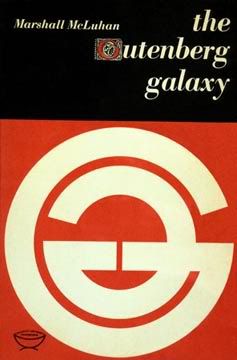Dennis Baron: A Better Pencil: Readers, Writers, and the Digital Revolution (2009)
Filed under book | Tags: · blogging, email, facebook, instant messaging, internet, language, literacy, myspace, reading, writing

“Computers, now the writer’s tool of choice, are still blamed by skeptics for a variety of ills, from speeding writing up to the point of recklessness, to complicating or trivializing the writing process, to destroying the English language itself.
A Better Pencil puts our complex, still-evolving hate-love relationship with computers and the internet into perspective, describing how the digital revolution influences our reading and writing practices, and how the latest technologies differ from what came before. The book explores our use of computers as writing tools in light of the history of communication technology, a history of how we love, fear, and actually use our writing technologies–not just computers, but also typewriters, pencils, and clay tablets. Dennis Baron shows that virtually all writing implements–and even writing itself–were greeted at first with anxiety and outrage: the printing press disrupted the “almost spiritual connection” between the writer and the page; the typewriter was “impersonal and noisy” and would “destroy the art of handwriting.” Both pencils and computers were created for tasks that had nothing to do with writing. Pencils, crafted by woodworkers for marking up their boards, were quickly repurposed by writers and artists. The computer crunched numbers, not words, until writers saw it as the next writing machine. Baron also explores the new genres that the computer has launched: email, the instant message, the web page, the blog, social-networking pages like MySpace and Facebook, and communally-generated texts like Wikipedia and the Urban Dictionary, not to mention YouTube.
Here then is a fascinating history of our tangled dealings with a wide range of writing instruments, from ancient papyrus to the modern laptop. With dozens of illustrations and many colorful anecdotes, the book will enthrall anyone interested in language, literacy, or writing.”
Publisher Oxford University Press US, 2009
ISBN 0195388445, 9780195388442
280 pages
PDF (updated on 2015-7-10)
Comment (0)Naomi Sakr (ed.): Women and Media in The Middle East. Power Through Self-expression (2004)
Filed under book | Tags: · civil society, feminism, film, gender, islam, journalism, literacy, mass media, middle east, public broadcasting

Is today’s changing media landscape in the Middle East empowering women? This is the first book to address the dynamics of media ecology and women’s advancement in the contemporary Middle East. The book spans both the region and media forms, from Iran’s women’s press, via Maghrebi women filmmakers and Egyptian political films, Palestinian TV and Hezbollah’s TV station, Al-Manar. It takes as its starting point the diverse experiencees and multi-layered identities of women and treats media institutions and practices as part of wider power relations in society. By analysing media production, consumption and texts, it reveals where and how gender boundaries have been erected or crossed.
Publisher I.B.Tauris, 2004
Volume 41 of Library of modern Middle East studies
ISBN 1850435456, 9781850435457
Length 248 pages
Marshall McLuhan: The Gutenberg Galaxy: The Making of Typographic Man (1962–) [EN, BR-PT, CZ]
Filed under book | Tags: · global village, literacy, mass media, movable type, print, renaissance, scholasticism, technology, typography, writing

“In this book, McLuhan analyzes the effects of mass media, especially the printing press, on European culture and human consciousness. It popularized the term global village, which refers to the idea that mass communication allows a village-like mindset to apply to the entire world; and Gutenberg Galaxy, which we may regard today to refer to the accumulated body of recorded works of human art and knowledge, especially books.
McLuhan studies the emergence of what he calls Gutenberg Man, the subject produced by the change of consciousness wrought by the advent of the printed book. Apropos of his axiom, “The medium is the message,” McLuhan argues that technologies are not simply inventions which people employ but are the means by which people are re-invented. The invention of movable type was the decisive moment in the change from a culture in which all the senses partook of a common interplay to a tyranny of the visual. He also argued that the development of the printing press led to the creation of nationalism, dualism, domination of rationalism, automatisation of scientific research, uniformation and standardisation of culture and alienation of individuals.”
Publisher University of Toronto Press, 1962
ISBN 0802060412, 9780802060419
300 pages
The Gutenberg Galaxy (English, updated on 2021-1-6)
A galáxia de Gutenberg (BR-Portuguese, trans. Leônidas Gontigo de Carvalho and Anísio Teixeira, 1972, added on 2017-3-12)
Gutenbergova galaxie (Czech, 2000, added on 2017-3-12)

